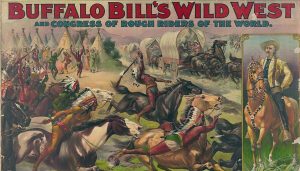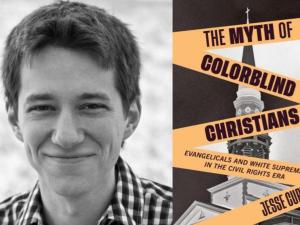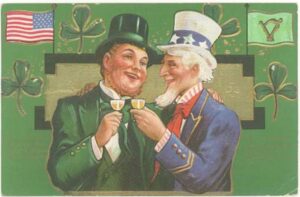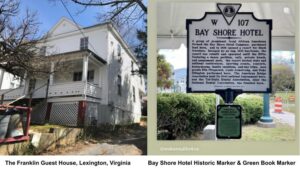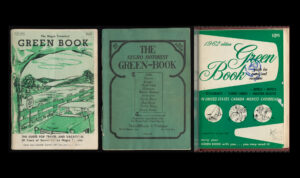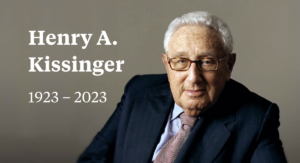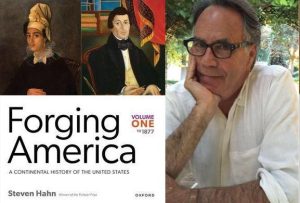Posts Tagged ‘American history’
The Wild West
“The Wild West” is one of the strongest conceptions in American history. But “where” was the west? How “wild” was it? “Who” settled it? Did settlers build the west with their hands? And how many of the stories about settlers and Native Americans are myths or misconceptions? Professor Edward O’Donnell helps us explain it all,…
Read MoreThe Myth of Colorblind Christians
Dr. Jesse Curtis shows us how white evangelicals in the 20th century US grew their own institutions and created an evangelical form of whiteness, infusing the politics of colorblindness with sacred fervor. They deployed a Christian brand of colorblindness to protect new investments in whiteness. While black evangelicals used the rhetoric of Christian unity to…
Read MoreThe Press and Women Politicians from Victoria Woodhull to Kamala Harris: Encore Episode
Professor Terri Finneman explains how the press has portrayed women politicians running for high office in the United States. From Victoria Woodhull in the 1870s to Kamala Harris in today, she enlightens us about how the media treatment of women politicians has and hasn’t changed over this long period! Encore Episode.— Buzzkill Bookshelf Teri Finneman,…
Read MoreIrish America: Race and Politics
Professor Mary Burke destroys the myths and caricatures of Irish Americans as a monolithic cultural, racial, and political group. Figures from the Scots-Irish Andrew Jackson to the Caribbean-Irish Rihanna, as well as literature, film, caricature, and beauty discourse, convey how the Irish racially transformed multiple times: in the slave-holding Caribbean, on America’s frontiers and antebellum…
Read MoreWho Said “Well-Behaved Women Rarely Make History”?
Lots of people are credited with coining the great phrase, “well-behaved women rarely make history.” They include Marilyn Monroe, Gloria Steinem, Eleanor Roosevelt, Anne Boleyn, and many more. Given time, any powerful woman with backbone and nerve will get credit for this phrase and sentiment. Even Princess Leila from “Star Wars” saying “well-behaved women rarely…
Read MoreGreen Book Sites: Local History and Architecture
We’ve already learned about the importance of “The Negro Motorist Green Book” from our previous show. Here, historians Catherine Zipf and Susan Hellman discuss their project on the architecture of the sites found in the Green Book and what various efforts are being made to locate more Green Book sites and preserve them. Perhaps the…
Read MoreTraveling While Black: The Green Book Guides to African-American Motoring
20th-century automobile travel was supposed to represent freedom, but what else did it represent? Professor Cotten Seiler from Dickinson College joins us to discuss the difficulties and hazards of traveling in the United States faced by African-American motorists in the 20th Century, especially during the height of segregation and Jim Crow. Specifically, we learn how…
Read MoreHenry Kissinger Part 2: Perpetual Power?
Professor Philip Nash joins us for Part 2 of our examination of the life and loves of Henry Kissinger, perhaps the most influential American foreign policy figure of the later Cold War. This episode discusses his time in power in the Nixon administration, his carefully crafted public image, and his continuing power after he left…
Read MoreHenry Kissinger Part 1: Meteoric Rise
Professor Philip Nash joins us for Part 1 of our examination of the life and loves of Henry Kissinger, perhaps the most influential American foreign policy figure of the later Cold War. We look at his origins, his education, his move into governing circles, and his meteoric rise to power in the 1970s. An amazing…
Read MoreForging America: a Continental History
“Forging America” speaks to both the complexities of historical experience and the meanings of the past for our present-day lives. Warning against the assumption of preordained outcomes, Pulitzer-Prize-winning historian Steve Hahn focuses the reader’s attention on those moments when historical change occurs. He weaves a history that is continental and transnational, a history of the…
Read More
